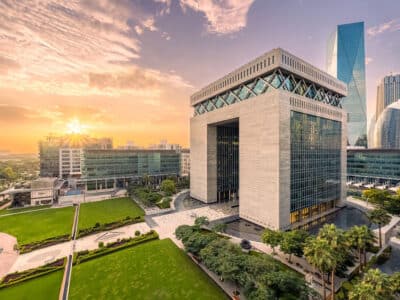Lack of investor education on Special Purpose Acquisition Companies (SPACs) remains a major obstacle for the new ‘listing’ route to take off in a big way in the UAE, market experts said.
The tepid progress of listing through the SPAC route remained a concern amidst the recent boom in initial public offerings (IPOs) in the country, they said.
The rush for IPO listings in UAE saw the Securities and Commodities Authority (SCA) approve in January a regulatory framework for SPACs. But the new listing route has not taken off in the same way as traditional IPOs, market experts at a panel discussion organised by the Institute of Chartered Accountants in England and Wales (ICAEW) held in Dubai pointed out.
“While the new ‘backdoor’ listing method is expected to attract further foreign investment, low investor understanding about the vehicle is limiting uptake,” was the overall view of the panelists.
“The rapid progress of the UAE government and regulatory bodies to adopt a complex investment vehicle and make it functional, as seen with SPACs, is indicative of the maturity of the market,” Vanessa Heywood, ICAEW Head of Middle East, said.

There are undoubtedly challenges still to be faced with SPACs, as is the case in even countries such as the US, Heywood added.
The UAE’s SPAC framework allows companies to list on the Abu Dhabi Securities Exchange (ADX) using a SPAC, which is effectively a shell company structure.
Since a SPAC holds few assets or liabilities, it is able to streamline the traditional initial public offering process.
Once listed, the SPAC generates capital to acquire or merge with a target company and take them public on the ADX.
Panelists agreed that while SPACs have boomed in the US, UAE regulation is still in its formative stages.
The ICAEW functionary, however, said the rise of IPOs in the UAE is driving the local equity markets to gain international standing.
“This will also continue to fuel economic expansion,” she said.
The Dubai government is currently preparing for its third IPO of a public sector entity on the Dubai Financial Market (DFM), part of its target of 10 public sector company listings.
The panel also brought attention to the recent profitability of regional IPOs.
“This has been driven by several factors, initially sparked by incredibly low-interest rates as governments tried to encourage spending during the Covid-19 pandemic, which provided locked-down retail investors with liquidity,” panelists said.
They pointed out that Russia’s invasion of Ukraine has caused oil prices to skyrocket, giving regional investors capital to invest more freely and attracting international investors seeking stability in emerging markets.
Andrew Tarbuck, Partner, Head of Capital Markets, Al Tamimi & Co., Andrew Tait, Group CFO, Fertiglobe, Amit Kumar, Managing Director, Moelis and Youssef Salem, CFO, Swvl, were among the panelists.








